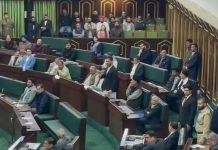The implementation of several path-breaking central legislations after the revocation of Article 370, like the Scheduled Tribes and Other Traditional Forest Dwellers (Recognition of Forests Rights) Act, 2007, the Scheduled Caste and the Scheduled Tribes (Prevention of Atrocities) Act, 1954, among others, is bringing a new era of progress and development in Jammu and Kashmir.
Under the guidance of the Prime Minister, Jammu and Kashmir is witnessing a new dawn. Tribals are getting land rights, thousands of government jobs have been provided within record time with complete transparency and major steps have been taken to ensure the empowerment of women, marginalised as well as weaker groups.
In a major relief to socially and educationally backward classes, the Jammu and Kashmir administration has enhanced their income ceiling from Rs 4.50 lakh to Rs 8 lakh allowing them to avail benefits of reservation according to provisions of the Jammu and Kashmir Reservation Act, 2004.
The rights of weaker sections like Scheduled Tribes, other traditional forest dwellers, Scheduled Castes and safai karamcharis’ are now ensured by the application of relevant Acts. Rights of children and senior citizens are now being ensured.
In order to create a just and equitable society, reservation rules have been amended to extend benefits of reservation to left out categories like Pahari speaking people and economically weaker sections.
Similarly, the implementation of 73rd and 74th Constitution amendments have given a new lease of life to grassroots democracy in J&K. Even though the three-tier system was implemented late in the UT, Jammu and Kashmir has emerged as a great and effective example in this system.
The step towards institutionalization of the offices of DDCs and BDCs, at a cost of Rs. 44.92 cr strengthened and accentuated the efficiency of the Panchayati Raj system, making it the engine of community development in future.



